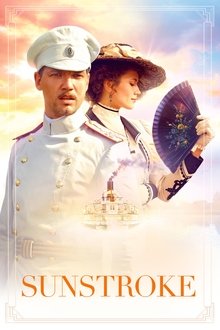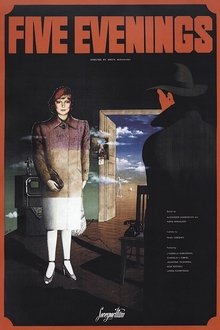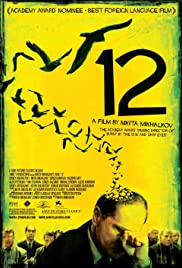Nikita Mikhalkov

Douglas is a foreign entrepreneur, who ventures to Russia in 1885 with dreams of selling a new, experimental steam-driven timber harvester in the wilds of Siberia. Jane is his assistant. On her travels, she meets two men who would change her life forever: a handsome young cadet Andrej Tolstoy with whom she shares a fondness for opera, and the powerful General Radlov who is entranced by her beauty and wants to marry her.

The story follows Maria Konovalova who travels from her rural village to visit her daughter Nina in the city. Maria’s arrival exposes the stark contrasts between rural and urban lifestyles and reveals deep-seated family tensions. Interestingly, Родня (Rodnya) in Russian sounds very similar to the word Родина (Rodina), which means “Motherland.” The film features three generations of women — Maria, her daughter Nina, and her granddaughter Irina — symbolizing three different Russias: one from the past, one modern, and one representing the future.

St. Petersburg, mid 19th century: the indolent, middle-aged Oblomov lives in a flat with his older servant, Zakhar. He sleeps much of the day, dreaming of his childhood on his parents’ estate. His boyhood companion, Stoltz, now an energetic and successful businessman, adds Oblomov to his circle whenever he’s in the city, and Oblomov’s life changes when Stoltz introduces him to Olga, lovely and cultured. When Stoltz leaves for several months, Oblomov takes a country house near Olga’s, and she determines to change him: to turn him into a man of society, action, and culture. Soon, Olga and Oblomov are in love; but where, in the triangle, does that leave Stoltz?

Russia, 1936: revolutionary hero Colonel Kotov is spending an idyllic summer in his dacha with his young wife and six-year-old daughter Nadia and other assorted family and friends. Things change dramatically with the unheralded arrival of Cousin Dmitri from Moscow, who charms the women and little Nadia with his games and pianistic bravura. But Kotov isn’t fooled: this is the time of Stalin’s repression, with telephone calls in the middle of the night spelling doom – and he knows that Dmitri isn’t paying a social call…

In a Crimean filtration camp, after the evacuation of the White Army, an unnamed captain is haunted by memories of a brief romance as he tries to understand how the Russian Empire fell apart and who is to blame.

Based on the play of the same name by Aleksandr Volodin “Five Evenings”.
The end of the 1950s. Aleksandr Petrovich Ilyin travels to the city where he lived before the war. Visiting the telephone operator Zoya, he sees a familiar house through the window and decides to go there for only fifteen minutes. So Aleksandr gets into a communal apartment, where the love of his youth Tamara Vasilyevna lives. They met twenty years ago and fell in love, but the war separated them. Now Ilyin and Tamara Vasilyevna met again, and love broke out with renewed vigor…

Aboard a ship early in the 20th-century, a middle-aged Italian tells his story of love to a Russian.

On a summer day in late 19th century Russia, a group of bourgeois friends and acquaintances gather at a dilapidated country estate.

During the Russian Civil War, the production of a silent melodrama runs into numerous complications.

A loose remake of “12 Angry Men”, “12” is set in contemporary Moscow where 12 very different men must unanimously decide the fate of a young Chechen accused of murdering his step-father, a Russian army officer. Consigned to a makeshift jury room in a school gymnasium, one by one each man takes center stage to confront, connect, and confess while the accused awaits a verdict and revisits his heartbreaking journey through war in flashbacks.